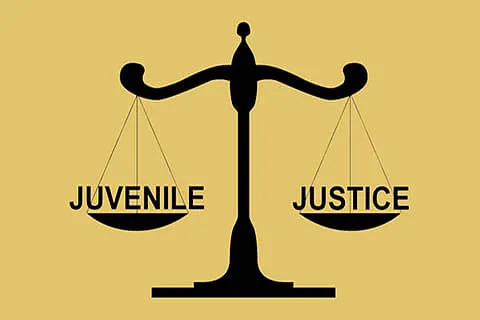Lok Sabha on Wednesday gave its nod to a bill which seeks to strengthen the provisions relating to protection and adoption of children.
Women and Child Development Minister Smriti Irani said the proposed law seeks to make the district magistrate a “synergising officer” for issues related to protection of children.
The Juvenile Justice (Care and Protection of Children) Amendment Bill, 2021, which seeks to amend the Juvenile Justice Act, 2015, proposes to increase the role of district magistrates and additional district magistrates with issues concerning child care and adoption, she said.
The minister said the panel had found various shortcomings in the implementation of the Act and the object of the proposed changes in the law is to ensure that action is taken without waiting “for a child to become a victim”.
She said the DMs are already empowered to review issues related to child protection. After the bill becomes a law, their scope will go beyond review and once they are legally ordained, they would make child rights and protection a priority area.
Irani said the procedure of child adoption has a fixed timeline but often it takes longer than usual. Once the law is in place, things would get streamlined, she said.
The minister lamented that in some cases, rehabilitation of children is not a priority for childcare homes and indicated that children are kept in such institutions to get funds.
Earlier, while moving the bill for consideration and passage, she said it was found that several childcare institutions in the country did not have basic facilities like beds, drinking water and toilets.
A total of 90 per cent of the childcare institutions are run by NGOs, she added.
The bill also seeks to categorise offences wherein the maximum sentence is more than seven years’ imprisonment but no minimum sentence or a minimum sentence of less than seven years has been provided as “serious offences” under the Juvenile Justice Act, and to remove difficulties in interpretation of the Act.
“Serious offences” include offences for which the punishment under the Indian Penal Code or any other law for the time being is imprisonment between three and seven years.
On the child welfare committee, the bill said no person shall be appointed as a member unless they have been actively involved in health, education or welfare activities pertaining to children for at least seven years or is a practicing professional with a degree in child psychology or psychiatry or law or social work or sociology or human development. The bill further proposes that the appointment of any member of the committee shall be terminated by the state government after an inquiry if they fail to attend the proceedings of the committee consecutively for three months without any valid reason or if they fail to attend less than three-fourths of the sittings in a year.






